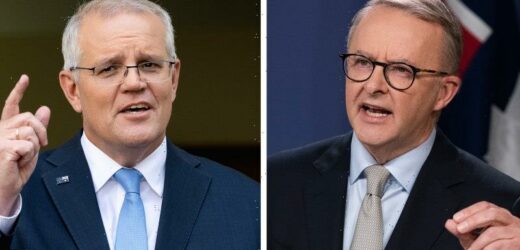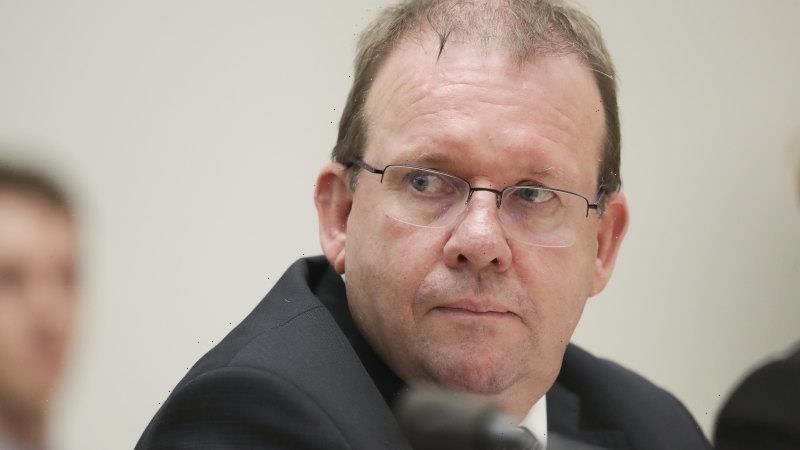Labor has gained an edge over the Coalition in a new scorecard of economic and social policies for women that could sway voters at the coming election, highlighting a gulf on key issues ranging from childcare to equal pay and safety from violence.
The assessment concludes that Labor has gone much further towards a universal early learning system that can make it easier for women to stay in the workforce, an economic objective that could lift productivity at a time when employers are warning of labour shortages.
Opposition Leader Anthony Albanese and Prime Minister Scott Morrison.Credit:Rhett Wyman, Alex Ellinghausen
But the scorecard fails both major parties on paid parental leave by finding neither side is committed to a minimum wage for 26 weeks shared between partners and the long-term goal of increasing this to 52 weeks within a decade.
It also fails both Labor and the Coalition on doing enough to help women and children in poverty and marks them down on their work so far in setting targets to promote women across the public sector.
University of Melbourne law and tax professor Miranda Stewart, a member of the Women for Progress group that assessed the policies, said the Coalition had moved on some issues such as childcare and violence against women but that this was “not really enough” when the scorecard measured the outcomes.
On the other hand, she said, Labor had recognised that childcare and universal, quality early learning was a key policy for the economy and gender equality.
“Of course you should vote across all the issues that matter to individuals. But be aware that if you care about these concerns, you need to be advocating for politicians who are actually going to take action,” she said.
Women for Progress, which includes more than 20 women across industry and the not-for-profit sector, produced the scorecard as a policy guide and is not entering the election campaign to advocate for any party, although it did the assessment after 15,000 people signed a petition it conducted to call for better policies from both sides.
Members of the group, which was set up by Nicola Forrest of the Minderoo Foundation, include former foreign minister Julie Bishop, company director Marina Go, AMP Capital Funds Management chair Ming Long, Citi Australia chair Sam Mostyn, Reserve Bank board member Carol Schwartz and educator and activist Wendy McCarthy.
As well as Bishop from the Liberal Party, the group includes former Labor ministers Jenny Macklin and Kate Ellis, former Democrats leader Natasha Stott Despoja and former ACT Liberal leader Kate Carnell. It also includes ACTU president Michele O’Neil and former Sydney lord mayor Lucy Turnbull.
The scorecard includes a statement that Australian women are being left behind under current policies and changes will be needed from both sides of politics to improve policies.
“Compared to other countries, Australia isn’t creating and providing enough opportunities for women and children,” says the document.
Stott Despoja, who was appointed last year to a four-year term as an independent expert on the UN Committee on the Elimination of Discrimination against Women, said the scorecard was a guide to overdue reforms that could boost productivity, especially through increasing and valuing women’s workforce participation.
“This election feels like the one that has broken my heart,” she said.
“The level of civil discourse is disturbing, some of the issues being discussed are clearly nasty deflections and the opportunity to engage in meaningful and long-term, transformative change is being shirked.”
Minister for Women Marise Payne announced $2.1 billion in measures for women in this year’s budget and said women’s workforce participation was at its highest level in Australia, while the gender pay gap had narrowed to 13.8 per cent compared to 17.4 per cent when the Coalition took government in 2013.
But Labor’s spokesperson for women, Tanya Plibersek, is promising voters cheaper childcare, more action on the gender pay gap, and a women’s economic security taskforce.
The scorecard uses a traffic light method to give the parties a green light when they have substantially or fully committed to a policy, an orange light for a partial commitment and a red light when they have not made a commitment.
On the commitment to a universal, accessible and high-quality early learning system delivered by securely employed and properly paid educators, Labor is ranked green while the Coalition is ranked orange.
On government-funded parental leave for a minimum of 26 weeks and a goal of 52 weeks by 2030, both are given a red light.
On the goal of including gender equality in the Fair Work Act and removing the need for a “male comparator” and establishing a Fair Work Commission gender equality panel, Labor is given a green light while the Coalition is marked red.
Labor also has an edge over the Coalition on the responses to the Respect@Work report by Sex Discrimination Commissioner Kate Jenkins about the treatment of women in the workplace, given Labor has promised to legislate a positive duty on employers to prevent discrimination.
Mostyn, the president of Chief Executive Women, issued a separate report this week with economic modelling that showed Australia could gain the equivalent of 500,000 additional full-time jobs if it closed the gender pay gap.
“We’re delighted that, at this stage of the election campaign, there’s now been a great deal of focus on the key impact that women’s participation can have on the Australia economy,” Mostyn said on Thursday.
“Whoever wins government, CEW would simply ask them to commit to putting women and the care sectors at the centre of their economic program and ensure that women’s voices and economic modelling on the criticality of women’s roles in the economy are prioritised early in the term.”
Others who were not involved in the policy assessment backed the need to improve outcomes for women and to make this an economic priority.
“In Australia right now, every business is short of labour and [we] have one of the most qualified, available sources of labour right there in our community but the incentive structures are all wrong to increase their participation,” Business Council of Australia president Tim Reed said.
“This has to be understood as an economic issue and a critical issue if we’re going to drive economic growth.
“So the priority after the election should be on childcare. There were changes made in the budget last year which improved the childcare subsidy and removed some of the points in the scaling rates and the thresholds which meant there were disincentives for some parents to enter the workforce – and that’s generally the mother.
“But there’s further that could happen there and it needs to be a priority because the economy will grow faster, individuals will benefit and the benefits are there for the taking.”
Cut through the noise of the federal election campaign with news, views and expert analysis from Jacqueline Maley. Sign up to our Australia Votes 2022 newsletter here.
Most Viewed in Politics
From our partners
Source: Read Full Article


